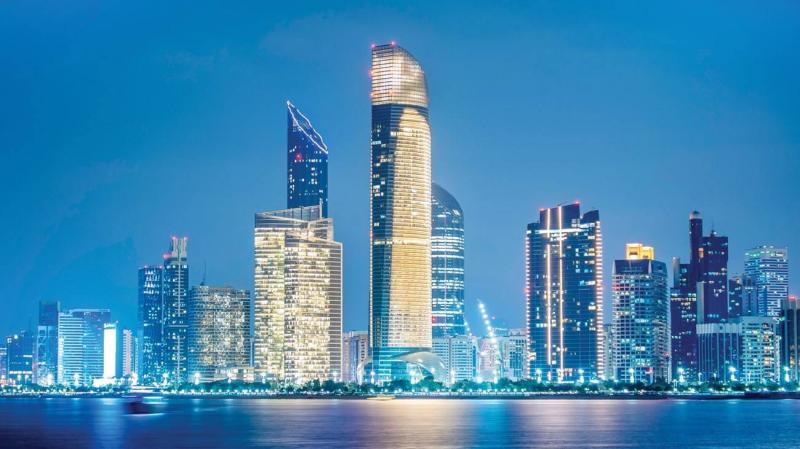WTO negotiators released draft agreements today, Friday, indicating that overnight talks in Abu Dhabi did not achieve a breakthrough on key issues, leading to a fifth extension in hopes that delegates could reach an agreement. Most issues are seen as interconnected, although some trade sources suggest a separate agreement on fisheries might be possible. Here are the developments in the talks on the fifth day:
*Agriculture*
- Negotiators state that the success of a series of WTO agreements depends on the success of agricultural talks, with India leading a push for reforms in this sector. U.S. Trade Representative Katherine Tai described these talks as "complex."
- India, facing farmer protests domestically and preparing for elections in May, aims to reach a permanent solution regarding public stockholding, a term referring to policies implemented by countries to purchase food to ensure food security.
- In the latest draft agreement released on Friday morning, two alternative solutions were bracketed, indicating no agreement has been reached on them.
- One aims to find a permanent resolution to issues in this meeting, while the other commits to intensifying and expanding negotiations to include other developing countries with the same privileges currently enjoyed by India under WTO rules.
- A source familiar noted that India rejected the second proposal during talks among a few key countries, including the U.S., Brazil, and China.
*E-commerce*
- Many countries, including India and South Africa, continue to oppose extending the suspension of tariffs and duties on digital trade, a move supported by the vast majority of countries and seen as important for businesses to avoid customs duties on digital goods like movie downloads.
- Trade sources told Reuters that other countries, including Brazil, would also oppose the suspension if there is no progress in agricultural talks. Brazil has not publicly stated its position.
- New Zealand's Trade Minister Todd McClay, who is facilitating e-commerce talks, told Reuters he would like to reach a more sustainable solution so these discussions do not recur at every biennial WTO meeting.
- On the positive side, a draft work program was agreed upon for future discussions following the meetings in Abu Dhabi.
*Fisheries*
- Countries are trying to agree on the second part of an international WTO agreement aimed at curtailing government support that critics say encourages industrial fishing fleets to deplete the world’s oceans. The first part was agreed upon in 2022 and will take effect if ratified by enough countries.
- Many participants, including U.S. Trade Representative Tai, view this as the topic most likely to yield an agreement in Abu Dhabi if outstanding issues can be resolved. Environmental activists say it is critically important for the world's oceans.
- The session chair released a new draft agreement this morning containing sections still highlighted in yellow, indicating areas of disagreement.
- One key issue is the rules governing the phased approach to subsidies for developing countries, which usually receive special exemptions from WTO rules but include many major subsidizing countries like China and India in fishing.
- The draft agreement states that the rules would take effect after a number indicated by the letter (X) of years, which negotiators say might range from seven to 25 years, as India prefers.
- Another question is whether China, the largest subsidizer, will fulfill its promise to officially abandon special rules that apply to developing countries, a condition many countries say they want written for approval of the deal.
- A new clause was added in the latest draft aimed at appeasing a group of Pacific Islands that complain the agreement lacks ambition. This requires countries to review from the WTO within five years and involves the potential imposition of "new commitments (to limit and reduce)" support for major subsidizers like Japan, China, and the European Union.
- Venezuela published a memorandum on Friday raising a series of objections to the draft agreement and requested the deletion of a clause altogether.
*Dispute Settlement*
- Countries are set to agree to commit to continuing negotiations in 2024 to attempt to resolve a crisis in their dispute settlement system, which has been stalled by U.S. opposition to its appellate body for four years.
- This has left many trade disputes unresolved since countries can challenge their legal validity and avoid enforcing WTO rules.
- Indian Minister Joel expressed that it is "sad" that countries are blocking solutions. He did not directly mention Washington but stated that he raised the issue of lack of progress on reforming the organization's dispute settlement system with Tai in a meeting earlier this week.
- Tai said negotiations on this matter are positive and have made progress. However, delegates indicate that many obstacles remain, casting doubt in their private sessions about the possibility of further progress in the U.S. presidential election year.
- Trade sources said a group of countries attempted to reach a friendly agreement, supported by the European Union, to avoid challenging the legality of WTO disputes, but this did not achieve consensus among members in Abu Dhabi.




